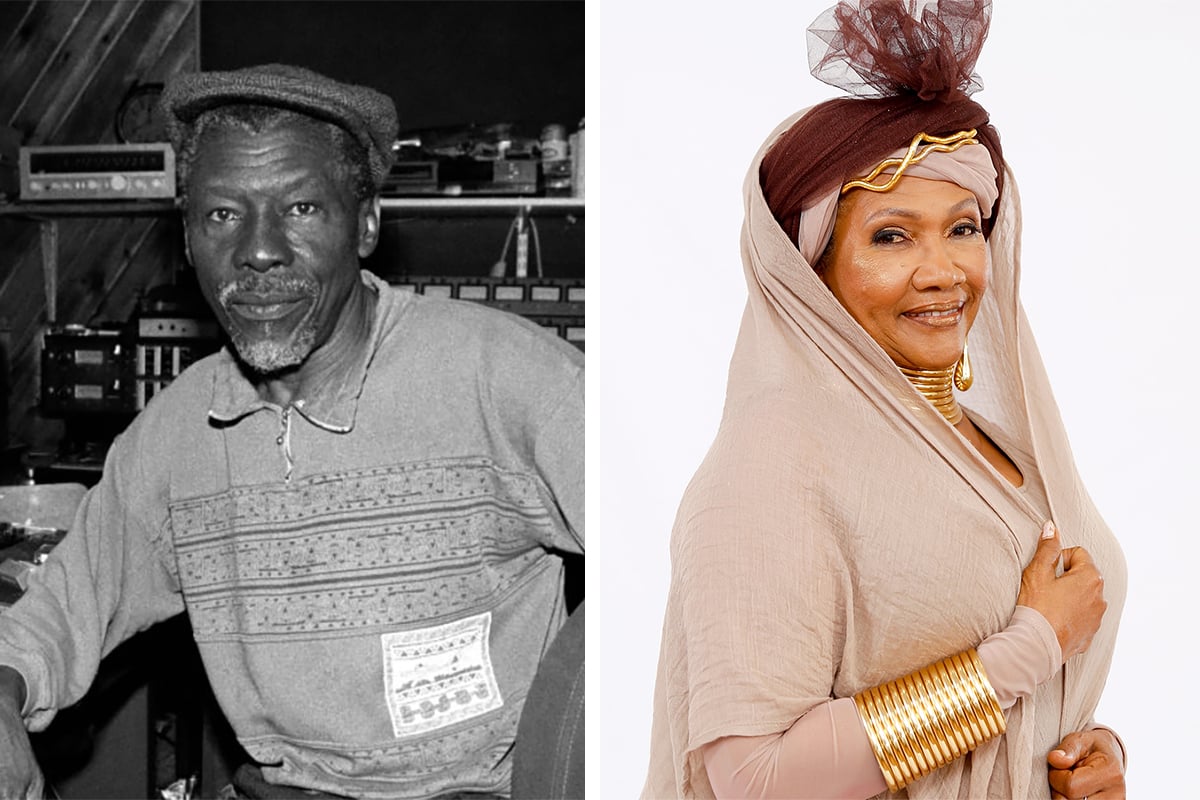Marcia Griffiths Defends Clement ‘Sir Coxsone’ Dodd: “He Gave Everyone Opportunities”

Reggae icon Marcia Griffiths has come out in defense of Clement “Sir Coxone” Dodd, arguing that the legendary Studio One producer was innocent of accusations made by several vintage artists that he did not pay over monies due to them.
Speaking with broadcaster Tom Powers in a recent interview on CBC’s Q podcast in Toronto, Griffiths said that back in the heydays of Studio One, Jamaican musicians, artists, and producers, including Dodd, who died of a heart attack in 2004, made very little from their work.
Accordingly, she said, Dodd ought to be appreciated, as he offered many opportunities to young struggling artists, with Studio One serving as a conduit and training ground, which reaped rewards for many, including herself.
“No money came with it… No one got paid. We go there like a 9 to 5 job clock in early morning and we are there all day in the studio recording. No money. We would maybe get one patty for lunch,” the Dreamland singer explained.
“There is no pay for anyone. Even if we do stage shows there is no pay… because when I hear them talk very badly of Mr Dodd, I would still give him praise because he still gave me the opportunity which was the greatest and he gave everyone else the opportunity too. Because I think he was really innocent then. I don’t think he was even making anything much himself. But we all got the opportunity to express ourselves and to show our talent to the world. And eventually it paid off for every single one of us,” she said of the late producer.
Griffiths’ first recording was done by the legendary music producer who did not hesitate to record her as a mere 11-year-old, at his Studio One outfit, only moments after a band refused to back her at an event at Carib Cinema.
Although the song, Wall Of Love, was never released, she got her first hit single there, with Feel Like Jumping, which was written by her close friend, the late Bob Andy, arranged by Jackie Mittoo, and produced by Coxone Dodd himself on the Studio One (Down Beat) label.
Dodd’s Studio One was established in 1963, and, in addition to Griffiths, birthed the careers of numerous artists, among them the Wailers, Alton Ellis, Bob Andy, Delroy Wilson, Burning Spear, The Heptones, Dennis Brown, Sugar Minott and Freddie McGregor.
According to a November 2009 Gleaner article, The Studio One catalogue, which boasts the most solid collection of foundation songs in the history of Ska, Rocksteady and Reggae music “got renewed exposure throughout the 1990s” through a distribution deal Dodd signed with American independent company, Heartbeat Records, which gave the Massachusetts-based label “exclusive rights to release Studio One albums, mainly in the United States and Europe”.
The article noted that whilst Dodd, who was posthumously awarded the Order of Distinction by the government for his contribution to the development of Jamaican music in 2007, was regarded by many musicians as Jamaica’s greatest producer, he had bitter battles with artists over royalties, among them the legendary singer/songwriter Bob Andy.
However, in April this year, Reggae singer Horace Andy, during the JaRIA Awards Ceremony in Kingston praised Sir Coxsone, while describing him as being upright.
“Mr Dodd, although dem seh him is not di best, him is di best becvaw him pay wi. Fi real…,” he had said.
A year earlier, the Government Land singer, whose given name is Horace Hinds, had also venerated Dodd to The Guardian newspaper, pointing out that the producer, who produced his biggest hit Skylarking in 1971, had handpicked him, given him his stage name and accepted him into Studio One, which he described as “my school, my college, my university” where he learnt “everything.”
Back in March 2019, Griffiths had paid tribute to Dodd and Studio One with the release of her album Donovan Germain-produced Timeless, a selection of 15 songs that paid tribute to the endurance of the Studio One’s catalogue.
Among the songs she covered were Delroy Wilson’s Once Up On A Time; Ken Boothe’s Home, The Heptones’ Baby Be True and The Cables What Kind Of World. Other classics included Peter Tosh’s I’m The Toughest and Sugar Minott’s This Old Man.
